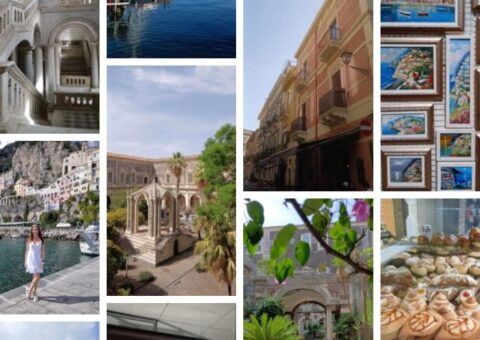Moving to Amsterdam: Essentials Tips For Relocation
In this article, we’ve brought you everything you need to know about moving to Amsterdam and living in Amsterdam.
A city of bicycles, canals and suspiciously-popular coffee shops, it’s one of the world’s most desirable cities for a relocation, receiving a near-constant stream of newcomers all keen to start a fresh life in the Netherlands.
Want to know how to find an apartment in Amsterdam? Or how to open a bank account in Amsterdam? Or where to live in Amsterdam? We’ve covered it all, including the Amsterdam cost of living.
If you’re thinking of moving to Amsterdam, we’ve got all the fuel you need to book that elusive ticket and start a brand new life.
We’ve brought you our information in two separate sections… things to know before you move to Amsterdam and things to do after you move to Amsterdam.
Things to know before you move to Amsterdam
If you’re considering living in Amsterdam, we’ve brought you some handy facts for stuff you should know before you decide whether or not to make the big move.
Want to know where to live in Amsterdam? Or Netherlands visa requirements? Or Amsterdam food costs? We’ve covered it all and more! Read on…
1. Where to live in Amsterdam
Like all other big cities, Amsterdam can be broken down into lots of smaller areas, and though around 200,000 expats live in the city, they’re all dotted around in various different districts.
In some ways, Amsterdam feels like a sprawling metropolis with several mini cities inside of it. From huge green family spaces to suburban startup centres to bizarre bohemian hangouts, Amsterdam runs the gamut of city vibes. And that’s one of the city’s main draws.
But depending on who you are, you’ll be looking for a certain thing from Amsterdam. If you’re a middle-aged person raising kids, you probably won’t want to be spending your time drifting around coffee shops with unnecessarily-moustached 20-somethings.
It’s therefore essential that you choose the right Amsterdam district for you.
To do so, check out another of our blog posts: Where to Live in Amsterdam – The Ultimate Guide to the Best Amsterdam Neighborhoods.
Whatever atmosphere you’re looking for, Amsterdam can offer it.
2. Amsterdam Cost of Living
Again, accommodation in Amsterdam can be pretty expensive, and we’d be lying if we claimed that it’s a budget traveler’s dream.
But it doesn’t have to be prohibitively expensive in the way that many people believe it to be.
Broadly speaking, living in Amsterdam is a little more expensive than living in Berlin, Munich or Madrid, but more affordable than living in London or New York.
Here are some prices you can expect to pay:
- Basic monthly utilities: €174
- Monthly internet bills: €43
- Monthly gym pass: €48
- One-way ticket on public transport: €3.20
- Monthly pass on public transport: €97.50
If you want to save money on public transport costs, you should ride a bicycle in Amsterdam. One of the best cycling cities on the planet, it’s a great place to zoom along on two wheels, but we’ve covered that in more detail later.
All numbers have been taken from the ever-trusty and ever-reliable Numbeo. According to Numbeo, Amsterdam is the 38th most expensive city in the world.
3. Amsterdam food costs
You can save a lot of money in Amsterdam by shopping around for affordable food.
In much of Western Europe, grocery shopping can be surprisingly affordable.
And though Amsterdam doesn’t offer the bargain basement grocery prices available in a place like Germany, it’s still easy to eat well on a decent budget. At supermarkets, you can expect to pay prices similar to these:
- Milk (1 litre): €1.07
- Loaf of fresh bread: €1.81
- 12 regular eggs: €2.76
- Local cheese (1kg): €11.99
- Chicken (1kg): €8.05
- Bottle of local beer (0.5 liter): €1.24
Meanwhile, if you do eat out, this too doesn’t have to be ridiculously expensive. While tourists seem to love getting ripped off at the nation’s most pricey restaurants, you don’t need to.
If you eat and drink at decent local spots with good food and reasonable prices, you can expect to pay:
- Meal: €16
- Half a litre of beer: €5
- Regular cappuccino: $3.38
- Soft drink (330ml): $2.64
4. Netherlands Visa Requirements
Compared to many countries, visa requirements for the Netherlands are pretty liberal. A city which specialises in legal drugs, laid-back attitudes and red light districts, that probably shouldn’t surprise you.
But Netherlands visa requirements vary depending on who you are, why you’re traveling and the country you’re from.
If, for example, you’re from an EU or EEA country (or Switzerland), you pretty much never need a visa to live or work in the Netherlands, regardless of how long you stay.
If you’re not from any of the above countries, you’ll likely need to jump through some (relatively simple) hoops.
Nationals of some countries such as the US, Australia, Canada and South Korea can visit the Netherlands for 90 days without a visa. Others need a visa to visit at all. Meanwhile, there are different visas for working, studying and living. In some cases, you can arrive in the Netherlands before you apply for a long-stay visa. In others, you can’t enter the country at all without one.
In short, what you’ll need to do is very dependent upon your plans for the Netherlands. This is a great site for getting all the information you need on long-stay visas. It gives you lots of information according to where you’re from and why you’re relocating.
5. Pet Travel to the Netherlands - Pet Relocation Costs
If your little pooches have an appetite for space cakes, you’re gonna have to take them to Amsterdam with you.
Taking a pet into Amsterdam is absolutely possible, and lots of expats have tackled the process. But there are rules. For example, your pet must be vaccinated against rabies, and it must be at least 15 weeks old. It must also have a pet passport (how quaint) and be microchipped. You must also register your pet within two weeks of arriving in Amsterdam.
Taking your pet to the Netherlands can often be a lengthy process, and you should look to start making plans 6-9 months in advance of your big move.
There’s more information about the rules here.
Pet relocation costs for the Netherlands are also a consideration.
For the flight itself, you typically don’t need to pay if you’re keeping your pet in the cabin on a short flight. But if your pet is going in the hold, you need to pay, and fees can run generally anywhere from €30 to €200.
You should also ensure you invest in a good kennel or box for your pet to travel in, as it’ll cause them much less distress. Don’t just cram them into a cardboard box.
For some cities in the Netherlands, you need to pay pet tax, a typically necessary step in relocating your furry little friends. But that’s not the case for relocating your pet to Amsterdam, which is a nice little perk.
When you consider the costs of flying, vaccinations, a pet passport and a pet crate, shuttling your pet to Amsterdam can be a relatively pricey venture, but it’s definitely better than leaving your hairy pal behind.
Things to do after you move to Amsterdam
After you’re prepped your big move, the work isn’t done yet. There’s still some stuff to be done once you arrive in Amsterdam. Good old logistics!
6. How to find an apartment in Amsterdam
You of course need to start your apartment hunt before you move to Amsterdam. But in our opinion, you should never sign a long-term lease for a long-term place to stay until you’ve looked at it in person.
As we’ve already mentioned, Amsterdam has lots of different districts, and it’s good to get a feel for them in person before you decide on the best district for you.
It’s also a good idea to view any long-term places in person as you’ll want to make sure that it’s everything you want it to be.
Here’s what we recommend:
- If you’re only moving to Amsterdam for a short amount of time, you should simply move into one of the many short stay apartments available in the city. You’ll have no bills and no endless house viewings, you won’t need to organise utilities and you’ll be guaranteed a brilliant place to stay.
- If you’re moving to Amsterdam long-term, you should move into a furnished apartment or a serviced apartment for a short time while you find a long-term place you love. If you do so, you’ll have somewhere nice to live while you get acquainted with the city and attend house viewings. It’s so much better than living in a hostel short-term.
In short, considering a furnished apartment or serviced apartment in Amsterdam – even for a short time! – is a fantastic idea. Check out these apartments in Amsterdam if you’re on the hunt for one.
Don’t gamble on a subpar place which you might end up hating. Go with us instead.
If you’re moving to Amsterdam long-term, there are lots of ways you can find a great place to live. Here are some things to think about:
- Check for social housing (sociale huurwoningen): these subsidised places are generally only available to Dutch residents on low incomes, but they’re worth checking out if you’re looking for a bargain place to live.
- Check Facebook groups for house shares and other lets. Facebook can be a surprisingly great way to find an excellent place to live, but you should always view a place in person before you hand over any money or make any agreement.
- Speak to an estate agent (makelaar) or house agent.
- If you’re on a real budget, consider registering with an anti-squat organisation, which places tenants in abandoned buildings on short-term contracts.
You could even live in a serviced apartment or furnished apartment long-term if you don’t want to deal with any bills, landlords or other boring bureaucracy.
But in short, our top tip is – don’t move into a long-term place before first either viewing that place, or signing a short-term contract with a view to staying longer.
7. How to open a bank account in Amsterdam
Opening a bank account in Amsterdam is relatively simple if you have all of the necessary documents. Typically, you only need ID, proof of income, proof of address and your residence permit or citizen service number (BSN).
For non-Dutch speakers, your two best options are:
- For an online bank, use n26.com. Sign up can be completed easily and the app is great.
- For a bank with actual material branches, you should consider ABN AMRO. A hugely popular bank with branches throughout Amsterdam, they offer a full range of specialized financial services crafted specifically for expats.
Here’s much more information on opening a bank account in Amsterdam.
8. How does health insurance work in Amsterdam?
Dutch healthcare is incredible, with some of the world’s best treatments. If there’s a new home to get sick in, Amsterdam is a good pick.
Everyone who lives and works in the Netherlands must – by law – have a health insurance policy. To register for this health insurance, you need a citizen service number (BSN). A standard health insurance policy (which is decided upon by the government) is offered by all insurance providers, and all providers are obliged to accept any eligible person who applies.
In short, getting health insurance in Amsterdam is very easy.
There’s much more information here.
9. Amsterdam public transportation
Amsterdam is a car-shunner’s dream. With trams, buses, trains, ferries and an excellent Metro system, there’s no journey that can’t be made with the help of the city’s extensive public transport system.
Most visitors buy day cards or one-hour cards to use Amsterdam’s public transportation, but for anyone living in the city, the best option is the public transport chip card (OV-chipkaart). With this card, you check in and out for each journey, and you can recharge your card over and over again. It’s the best way to use public transport in the city.
But the best transport of all in Amsterdam isn’t its barrage of buses, ferries and trams. It’s bicycles.
And that brings us to…
10. Amsterdam cycling infrastructure
Amsterdam is the archetypal cycling city. Around 70% of the city’s commutes take place on the back of a bike, and around one third of all the city’s journeys are made in the same way.
There are more bicycles in the city than there are residents.
You’ll see bikes everywhere, joyously ridden by grandfathers, policewomen, kids, business people and everyone in between.
Amsterdam is built for cyclists. With cycle lanes everywhere, endless cycle hire schemes and an outrageously flat landscape, it’s perfect for gliding along on two little wheels. Wherever possible, traffic flow is separated from cycle lanes, and there are lots of road signs built specifically for the city’s cyclists.
Looking to buy a bike in Amsterdam? Again, it’s a good idea to buy one only after arriving in the city, but some good resources are Facebook, second hand stores, and the city’s endless number of cycling stores.
You could even consider shipping your own bicycle to Amsterdam if you’ve got a trusty set of wheels you’re particularly proud of.
Here’s much more information on using and buying bicycles in Amsterdam.
11.Should I learn Dutch to live in Amsterdam?
Though you could – and should – learn some Dutch before you arrive in Amsterdam, it’s largely a task you can tackle once you’ve landed in the city.
Many people will tell you that you don’t need Dutch to live in Amsterdam. And though that’s true (thanks to how well most Dutch people speak English), learning Dutch will make your new life in Amsterdam even more exciting. You’ll be able to shop more easily, make friends more easily and tackle bureaucratic things more easily.
Learning Dutch in Amsterdam is a gateway to a better understanding of its people, its culture and your brand new home.
If you want to experience Amsterdam in the best way you possibly can, it’s good to be equipped with at least a passable knowledge of Dutch.
If you want to learn Dutch in Amsterdam, there are lots of options, from private tutors to classes to language exchanges. If you’re looking for classes, Berlitz School of Language is a great place to consider first. For a brief introduction before you arrive in Amsterdam, consider Duolingo.
For non-EU nationals moving to the Netherlands, civic integration courses are often necessary, and include large portions of language learning.
Here’s even more information on Learning Dutch in Amsterdam.
In short…
There you have it! Everything you need to know about moving to Amsterdam and living in Amsterdam.
An incredibly diverse city packed with warm welcomes and the tempting promise of a laid-back life, Amsterdam is a great place to live. It’s fun and homely, healthcare is great and pollution is low.
It’s one of the world’s best cities for a relocation, and it’s waiting for you.























